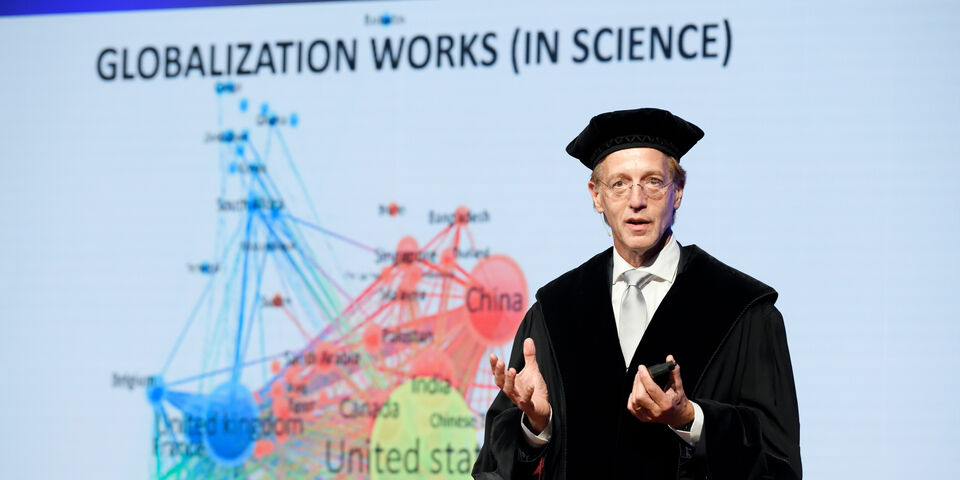Over eighty speakers and discussion leaders participated in the online festival, which was devoted to the opportunities and pitfalls of ‘recognition and rewards’. The minister joined in as well, shortly before a cabinet meeting.
“I am very proud that the Netherlands is taking the lead in this international discussion,” he said. He hopes that ‘recognition and rewards’ will become an ‘export product’.
In the scientific world, ‘recognition and rewards’ refers to the ideal of taking a broader view of the work of researchers. It involves greater emphasis on teaching, leadership, social impact, open science and more.
Orchestra
Dijkgraaf compared this approach to an orchestra. As a minister, he looks at the orchestra as a whole, rather than focusing on the individual instruments, he said. While not all scientists have to excel at everything, science as a whole should provide scope for all that matters.
The organizers’ purpose for the festival seemed to be to clear up all sorts of misunderstandings and allay fears. Critics of the new movement believe that the baby is being thrown out with the bathwater. You should be able to judge scientists simply on their scientific achievements, they believe, and not put too much value on things like a ‘narrative CV’, as recently stated in an open letter.
Let’s stop sending open letters, suggested Marcel Levi, Chair of the Dutch Research Council (NWO), in one of the smaller sessions,because open letters do not allow for dialogue. The Dutch culture of open letters surprises him.
One of the writers of these open letters, medical researcher Raymond Poot, sat at the table with him and protested. His response was that, without open letters, critics would not be listened to. In that case, they concluded, we are doing something wrong and we need to listen to each other better.
Discarded
Poot’s criticism came down to the fact that all kinds of methods for assessing the work of researchers are being discarded, without any clear notion of what should replace them. Why, for example, should you not be allowed to disclose in which journals you have published your work?
The response of advocates such as Levi was that if you want to change something, you have to start somewhere. “You have to listen to each other and learn from your mistakes,” Levi said. It is true that NWO excluded citations for a while, but that policy has been amended in the meantime.
He was also understanding of the criticism of the narrative CV, or ‘essay competition’, as it has been disparagingly called. He is more in support of an evidence-based CV. “Any researcher can say: I am amazing. And that’s fine, but they have to provide evidence to justify such a statement.” Solid statistics on your achievements can contribute to this.
Many supporters of the ideal were present, since they organised the festival. The day was kicked off by Maastricht University Executive Board President Rianne Letschert and VU Amsterdam Rector Jeroen Geurts, who said that ‘recognition and rewards’ was one of their incentives to focus more on governance.
President Ineke Sluiter of the Royal Netherlands Academy of Arts and Sciences (KNAW) was also present. Some critics may be afraid that you will soon no longer be allowed to excel in science and that all attention will be focused on other subjects. “Nobody wants that,” she assured the audience.
Proponents
In the highest ranks of science, there are indeed many proponents of the new course, and various groups of young scientists are also rallying behind it. One of the concerns was: do Dutch researchers still have a chance abroad if the Netherlands is the only country doing this?
Nobody knows for sure. The trend is also on the rise in other nations, but how far will it go? “Recognition and rewards will only be worthwhile if it takes root internationally,” said Minister Dijkgraaf. “We should not be a small island; we should spread the ‘news’. We are pioneers in this endeavour.”


Discussion